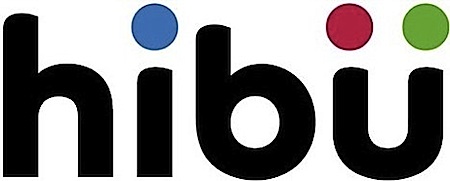After posting an annual loss of £1.4 billion earlier this week, the online directory service Yell has announced its plan to rebrand as Hibu (reads as high-boo) with the identity developed by Landor Associates. The company reports that the rebrand will concern the online offerings only, such as Yell.com and eMarketplace, along with the corporate brand Yell, whilst its printed products remain without changes.
Commenting on the new name and identity, Yell CEO Mike Pocock says that «the name itself means nothing» while the round-shouldered letters in the logo reflect the «people behind the identity».
Going through the corporate rebranding, the company hopes to win new digital revenues despite the decline in print directory profits and the existing debt burden of £2.2 billion.
Pic. Hibu’s logo
Yell’s rebrand as Hibu, and its new name, in particular, has provoked a wave of controversy among branding experts and analysts. Of course, there is nothing wrong in having a meaningless name as such, however, the ‘level of meaninglessness’ may vary though.
Pearlfisher’s Sylvie Saunders, Head of Words, comments on the case: «Yell was a seemingly strong and clever adaptation of the famous and much loved Yellow Pages brand. But was it standing the test of time? All brands need to think about their evolution but throwing the baby out with the bath water and, in this case, its most recognised signifier out with the rest of the key equities was bound to be met with confusion and criticism.
Hibu has been thrown into the spotlight without its support crowd. There are so many questions to which we do not know the answer: does it have a compelling brand line? How does the rest of the brand speak? And what story will be built around the name to give it meaning?
But, conversely, it might grow on us. Think Gü and Froosh. Two seemingly nonsensical names that imply something that a more functional name would destroy; Devilish Desserts or Fresh Fruit Smoothies would have lost public interest years ago. A good invented name can spark a different sort of love and create a personal connection with the consumer. Rather than simply telling people what it is, it engages the imagination, meaning many things to many people. But, of course, a new brand is already an open book and not a re-telling – or re-titling…»
